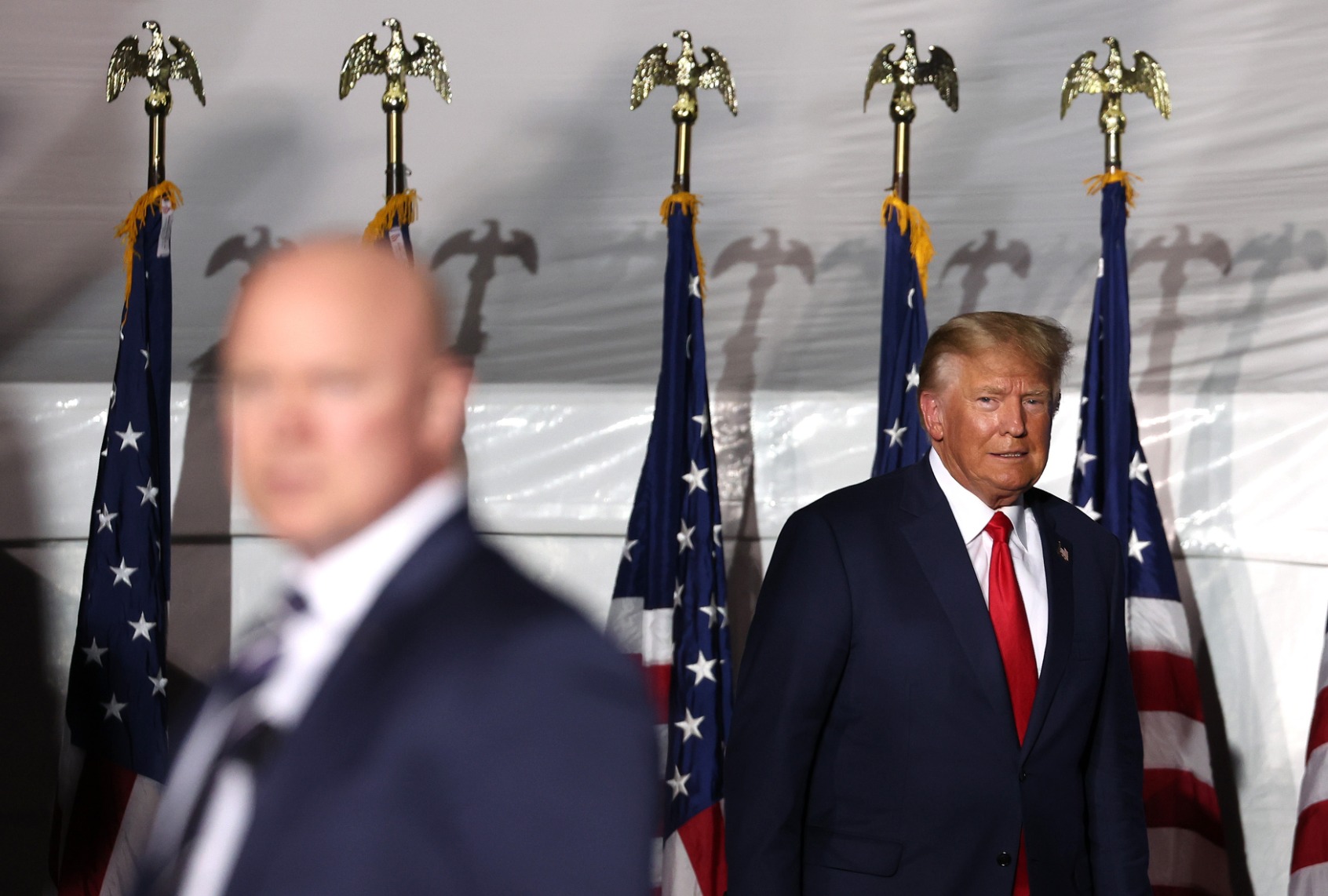At least one Trump employee was caught on surveillance footage moving boxes of documents at Mar-a-Lago after the Justice Department issued a subpoena demanding the return of classified documents, according to multiple reports.
A Trump employee told investigators about moving boxes of materials at former President Donald Trump’s direction after the subpoena was issued, according to the Washington Post. Investigators reviewed surveillance footage showing people moving the boxes and ultimately secured and executed a search warrant in August to search Trump’s residence.
The employee in their first interview with investigators denied handling any sensitive documents but when agents interviewed the employee a second time, “the witness’ story changed dramatically,” sources told the Post, and said that Trump directed staff to move the boxes.
“The FBI uncovered evidence that the response to the grand jury subpoena was incomplete, that additional classified documents likely remained at Mar-a-Lago, and that efforts had likely been taken to obstruct the investigation,” the DOJ said in a Supreme Court filing on Tuesday.
The report comes amid “months of dueling accusations and theories about who may be cooperating with the federal government,” The Post reported, adding that the witness’ account has been a closely held secret inside the DOJ over concerns that the person could face harassment or threats from Trump supporters if they are identified.
The New York Times on Wednesday also reported that Trump employee Walt Nauta was caught on surveillance footage moving boxes from a storage room before and after the subpoena, though it’s unclear that Nauta is the same employee described by the Post report.
Nauta, a former military aide who left the White House and went to work at Mar-a-Lago, has been interviewed by the DOJ on “several occasions.”
“Nauta has answered questions but is not formally cooperating with the investigation of Mr. Trump’s handling of the documents,” according to the Times.
The DOJ obtained a subpoena in May to retrieve all materials marked classified. Trump’s team handed over 38 additional documents marked classified but one of Trump’s lawyers present during the meeting “explicitly prohibited government personnel from opening or looking inside any of the boxes that remained in the storage room, giving no opportunity for the government to confirm that no documents with classification markings remained,” the DOJ said in a court filing in August. The DOJ later obtained evidence that Trump was holding additional documents, and raided his residence on August 8.
Want a daily wrap-up of all the news and commentary Salon has to offer? Subscribe to our morning newsletter, Crash Course.
New York University Law Professor Ryan Goodman marveled at the “astonishing level of evidence” the DOJ collected in the case according to the reports.
“Moving documents to hide them from DOJ is the kind of aggravating factor that would make Trump’s conduct an indictable offense,” wrote Barb McQuade, a former U.S. attorney.
The testimony and additional reporting that Trump’s lawyers signed a declaration falsely attesting that all documents had been turned over “suggests an effort to hide the documents from federal government,” tweeted Renato Mariotti, a former federal prosecutor.
“This evidence is an aggravating factor that could weigh in favor of charging Trump,” he wrote.
The evidence “increases the chances of Trump being indicted after the upcoming election,” predicted former federal prosecutor Richard Signorelli.
Andrew Weissmann, a former prosecutor on special counsel Bob Mueller’s team, agreed that “the issue is no longer the proof, but the DOJ’s will” to bring the charges.
“Day by day the evidence that proves Trump personally orchestrated the theft and concealment of top secret documents becomes stronger,” wrote Harvard Law Professor Laurence Tribe. “Any shadow of a doubt about his guilt is rapidly vanishing.”
While some legal experts believe that there is evidence to charge Trump with obstruction, conservative attorney George Conway predicted that the “shortest distance between Donald Trump and an orange jumpsuit” is a case showing that he violated the Espionage Act.
“He’s caught red-handed,” Conway told MSNBC. “Basically what he’s done, refusing to give the documents back upon request is sufficient under the Espionage Act, and he’s done that, and then you have the aggravating facts about how the volume of documents and the lying and how long it’s dragged on. I don’t know how they don’t bring the case.”
Read more
about Trump’s legal battle

